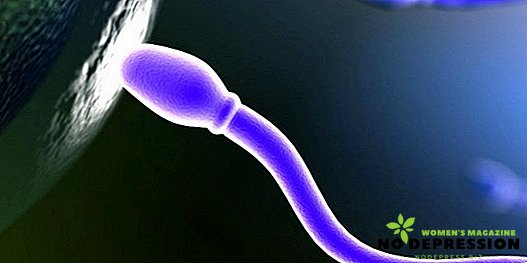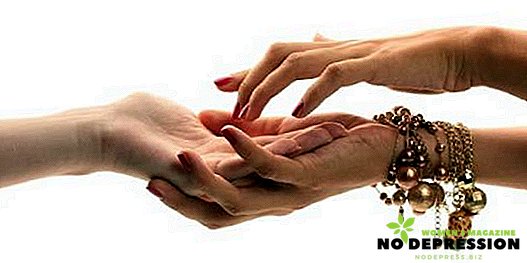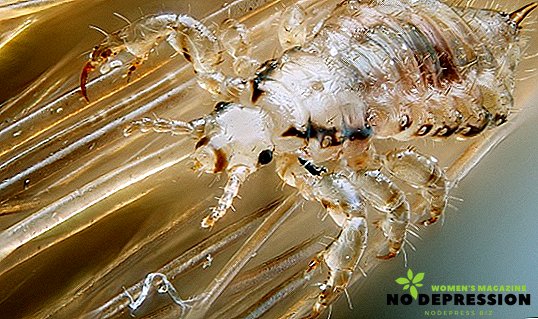Many women are convinced that pregnancy can occur only on certain days of the cycle, and this just can not happen during menstruation. Is it so? In fact, there is no - getting pregnant in the last days of menstruation or immediately after it is possible and often happens. It is not by chance that the calendar method of contraception is considered one of the most unreliable.

Why does this happen? The reason for a sudden pregnancy may be the maturation of two eggs instead of one with an interval of half a cycle, various menstrual disorders, or increased survivability of spermatozoa.
On which day after your period you can get pregnant
The probability of pregnancy in the first day or two of menstruation is very low, because at this time the internal environment of the vagina and uterus is extremely unfavorable for spermatozoa. With a decrease in the intensity of secretions, the probability of an unexpected conception appears. It is above all at the time of ovulation, in the middle of the cycle, but persists on other days.
You can accurately calculate the days when the probability of conception is high, when it is low and almost zero, if the menstrual cycle is relatively stable. What you need to do to know your dangerous and safe days:
- Using the monthly calendar to calculate the duration of your menstrual cycle. If the difference between the longest and shortest cycles is more than 6 days, the calculations will be ineffective.
- Take the shortest and longest cycle. From the number of days in the shortest subtract 18, in the longest - 11. These will be the days of the beginning and end of the "dangerous" period.
- After this period, the probability of conception decreases every day, the most “safe” days - two days before and the first two days of menstruation. Then the probability of conception begins to gradually increase.
- Consideration should be given to the duration of the monthly and the cycle itself. The shorter the cycle, the less “safe” days it has, the longer the monthly periods, the more likely it is to get pregnant during them.
Calculation table:


Here is a simple example for clarity. Just in case, it will not be superfluous to remind you that the first day of the cycle is considered the first day of menstruation. If a woman has the shortest cycle lasts 23 days, and the longest - 27, then the period most favorable for conception begins on the fifth day of the cycle, which during long periods can coincide with their last days, and lasts up to 16 days.
With a cycle duration of 21-25 days, these figures will be from the third to the fourteenth, that is, the beginning of the dangerous period is already in the middle of the menstrual period, making conception during them more than likely.
It is impossible to make a universal table of calculations, looking at which a woman could say with certainty when she can afford not to protect herself - every woman has her own menstrual cycle, and its duration varies in small, but sometimes very important limits.
Can I get pregnant before and after menstruation
 As mentioned above - it is possible, and even very likely. The first two days before the menstruation are considered to be almost completely safe, but only on condition that the woman's menstrual cycle is relatively stable, and she calculated the required days accurately.
As mentioned above - it is possible, and even very likely. The first two days before the menstruation are considered to be almost completely safe, but only on condition that the woman's menstrual cycle is relatively stable, and she calculated the required days accurately.
Days after menstruation in almost all women are favorable for conception. The probability of becoming pregnant in women with a long cycle and short periods is somewhat lower, their dangerous period begins later.
But this is not a guarantee of safe sex, just as sexual intercourse on “dangerous” days is not a guarantee of conception.
Pregnancy during menstruation
Many women avoid intimacy during menstruation. Others, on the contrary, believe that this is a time when sex is not associated with the risk of becoming pregnant. So why are the latter wrong? What happens in the female body?
Egg multiplicity
First, a woman does not always ripen one egg in one cycle - there can be two, and sometimes three at a time. If such multiple ovulation occurs at the same time, then all the eggs have a chance to be fertilized, and the woman will become the happy mother of fraternal twins.
But if paired ovulation does not occur synchronously, but with an interval of time, then the second egg cell may be ready for fertilization just during menstruation. It is possible to suggest such a development of events, if twins were born in a woman’s family or there were already cases of pregnancy during menstruation.
Sperm vitality
Secondly, male spermatozoa can remain alive and retain the ability to fertilize for several days, sometimes up to a week, so they have every chance of waiting for the appearance of the egg, especially during a short menstrual cycle in a woman.
How hormones and external factors influence
Changes in hormonal levels are the main driving force of a woman's menstrual cycle, therefore they deserve a separate discussion. The menstrual cycle is regulated by the same cyclic change of the most active of the female sex hormones.
The first phase of the cycle is determined by estrogen, in the middle of the cycle there is a change of the main "actor", and progesterone comes to the fore, the onset of menstruation is due to low concentrations of both hormones - hormonal hunger, then the estrogen phase begins again.
Contraceptives
These complex mechanisms of regulation are subject to fluctuations and failures. The reason may be, for example, inappropriate intake of oral contraceptives.
These drugs duplicate the menstrual cycle of women, so they need to take, observing a strict time frame. If this is not done, then the drugs will not only be useless, but may also contribute to unwanted pregnancy.
Changes in hormonal levels
 Another cause of failure is hormonal surges. For example, severe stress can disrupt the cycle, and a favorable time for conception can shift, including during the menstruation period.
Another cause of failure is hormonal surges. For example, severe stress can disrupt the cycle, and a favorable time for conception can shift, including during the menstruation period.
This also includes irregular sex life, frequent changes of sexual partners and also a rare achievement of orgasm. If a woman leads such a lifestyle, the most reliable means of contraception in her case are condoms.
Diseases
Infectious diseases and exacerbations of chronic diseases, not to mention endocrine disorders, can affect the menstrual cycle.
In this case, the cycle can be unstable, which means that it is not possible to talk with confidence about dangerous and safe days - they change from cycle to cycle.
External factors
There are a lot of different factors that influence the possibility of conception outside the school hours, and it is impossible to predict their exact effect, therefore the conviction that it is impossible to conceive during menstruation is an extremely unreliable contraceptive.
How to increase the probability of conception?
If the pregnancy is desired, and the woman seeks to accelerate her offensive, then she can do it in several ways.
- Timing.
 First, the days that are considered dangerous, that is, the most suitable for conception, including the last days of menstruation - the most successful for sex, if the couple wants a child.
First, the days that are considered dangerous, that is, the most suitable for conception, including the last days of menstruation - the most successful for sex, if the couple wants a child.
To more accurately calculate that same day, there are tests for ovulation, and you can also listen to changes in your own sensations - at the right moment sexual desire increases, transparent mucous discharge from the vagina appears, and pulling, but not severe pain in the lower abdomen can occur.
- Lots of sex.
Secondly, and this is important - it is not always possible to conceive a child at the first attempt, therefore it is necessary to have sex a lot and often. The probability of conception is greater if the woman has a permanent sexual partner. According to statistics, many couples get to conceive children only a year after they began to plan a pregnancy, so you should not worry if the future baby is in no hurry to declare himself.
- Consultation gynecologist.
And it is imperative that when planning a pregnancy, it is necessary to consult with a gynecologist, to be examined for many diseases that can interfere with conceiving, bear and give birth to a child, and not only the woman, but also the future father should be examined.
And most importantly, the child must be desired and loved already when the couple decides to become parents.

Conclusion
Summarizing the above, we can come to the following conclusions:
- Pregnancy during menstruation, especially their last days, is possible;
- Before menstruation - the most "safe" days, after - the most "dangerous";
- The hormonal background of a woman is subject to fluctuations, therefore the days favorable and unfavorable for conception can vary;
- With an unstable menstrual cycle, the calendar method of contraception is completely unreliable;
- It is possible to increase the probability of conception, knowing well your body and creating favorable conditions for the onset of pregnancy.
Additional information on the topic can be found in the following video.












